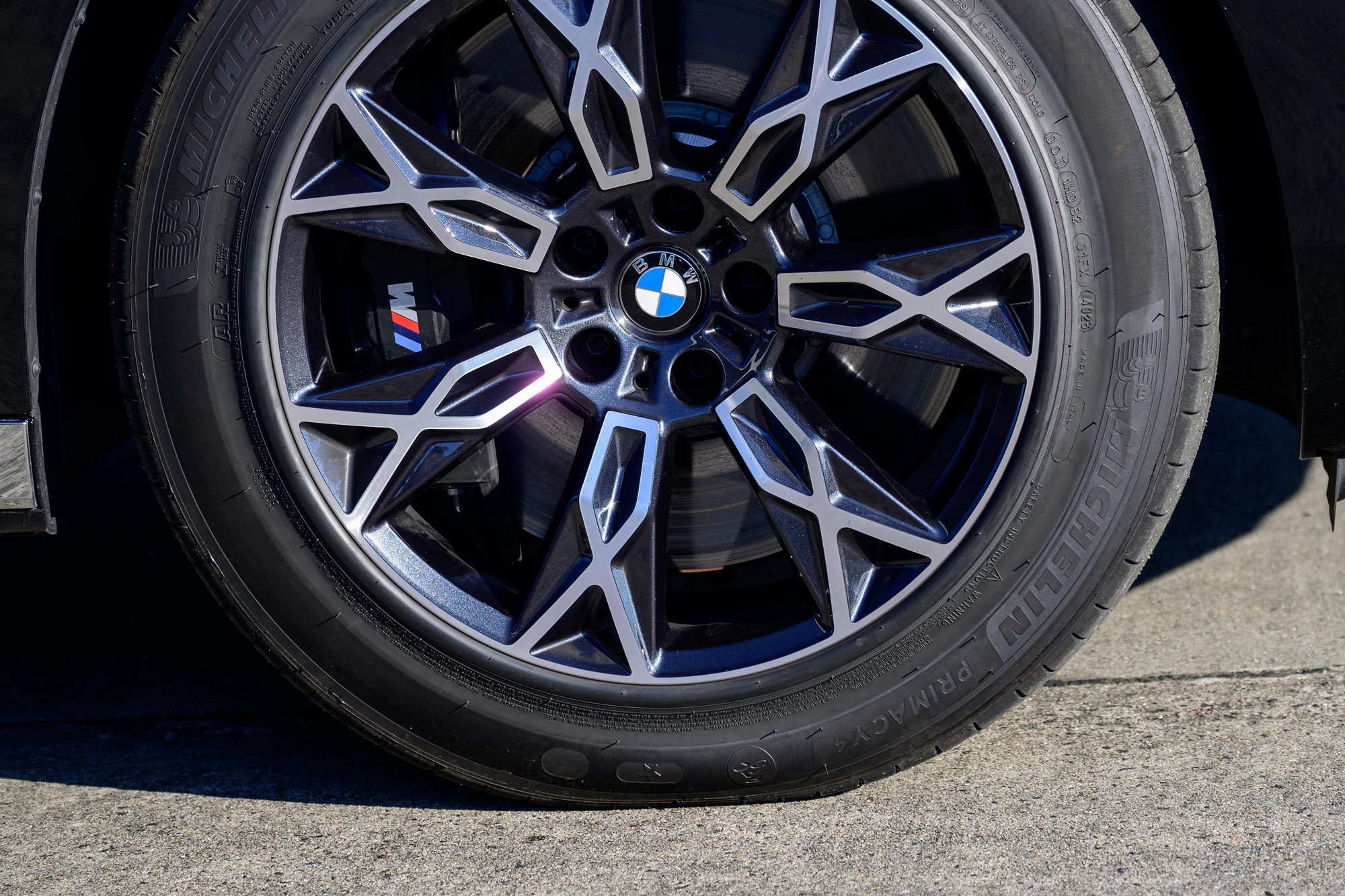Reasons Why Automakers and Tire Manufacturers Codesign Tires
Factory tires are tuned to the vehicle but also represent a compromise.
 BMW
BMW
Tires are the ultimate factor determining how your car drives. Everything that helps your car go down the road — from the engine to the suspension to the brakes — works through the four small contact patches where rubber meets road. Automakers know this, and when they're engineering a new vehicle, they often collaborate with tire companies to make a tire that's specially tuned for that car.
Here's what you should know about codesigned tires to help you pick the right rubber for your ride.
Your Car May Need Special Tires
Modern tires need to solve a lot of problems at once. First, they need to provide the traction to keep you safe on the road through all conditions. They also need to run quiet, last a long time, and help your car get the best fuel mileage possible.
Each car has a different set of challenges for tire engineers. A sports car will prioritize high-speed grip. A luxury car will focus on a smooth, silent ride. An SUV needs to tackle rough roads and nasty weather.
"From a car company standpoint, it's the same reason they have bespoke radios, bespoke shock absorbers," said Will Robbins, director of consumer product strategy at Bridgestone. "It's because they're looking for something that's very specifically tuned for their market. They're looking for something incredibly specific that the tire needs to do as part of the suspension to get them the feel that they're going for."
Know the Code for Your Car's Tires
The process begins when an automaker reaches out to a tire company with a specific set of performance targets for a new vehicle. The tiremaker will start with an off-the-shelf design and make adjustments to meet the car company's needs.
"In some cases there are 50 or 60 individual requirements that they're looking for," Robbins said. "There are some things that don't necessarily change, like the interior of the tire that holds the air. … But structural materials, tread patterns — those major things that influence performance — are usually tuned exactly to the [automaker's] specifications."
Factory-fit tires designed to a car company's specs usually carry a special label on their sidewall. Porsche's code is the letter N. Mercedes-Benz labels its bespoke tires MO, for Mercedes Original. BMW's factory-spec tires wear a star on their sidewalls.
The practice isn't limited to high-end vehicles. General Motors orders custom-tailored tires labeled TPC, and Hyundai's special Michelin tires are branded HN. An automaker might use different tire suppliers for different vehicles in its lineup, but every special-blend tire will wear the car company's exclusive label.
"The process is almost exactly the same," Robbins said, "if it's a Honda Civic, a Toyota Camry, or a Porsche."
For the most part, every new car model hits the showroom with a custom-tailored tire.
"I would say 95% of the time, in my experience," Robbins said, "it's going to be a custom development, and that's really regardless of the price point" of the car.
What to Consider When Replacing Factory Tires
When it's time to replace your car's worn-out tires, you might be faced with a kaleidoscope of choices. If your car is only a few years old, your dealership service center is almost guaranteed to have your car's exact factory-fit tires, and most national retailers should have no trouble finding the custom-label tires that came with your car when it was brand new. But those custom tires might not be necessary.
"I think it really does come down to how satisfied is that consumer with the way their car performed when it was new," Robbins said.
Most custom-blend tires represent a compromise, he said. Automakers need to strike an acceptable balance of fuel economy, tire durability, grip, and comfort.
Those custom-spec tires were most likely chosen to serve the biggest possible variety of drivers, and they might not be the best solution for your individual needs. The owner of a high-end sports car might choose replacement tires offering better cornering grip. A winter commuter in North Dakota needs cold-weather traction, while an Arizona driver might need tires that can stand the brutal heat of desert pavement.
Electric vehicles pose a particular challenge. EV manufacturers commission low-rolling-resistance tires to help squeeze every last mile out of their cars' batteries. Low-rolling-resistance tires require less energy to rotate, in part by reducing the friction between the tires and the road.
"The design decisions that are made to support that longer range are typically a little bit worse for wear," Robbins said. An EV owner buying replacement tires "might trade off a little bit of that range performance to get much better wear performance in a replacement tire."
When it's time to replace your tires, think of them as your car's shoes. Some folks can get by with generic footwear, but a construction worker has different shoe needs than a nurse does — or a mountain climber or a postal carrier. As long as you're buying tires that are properly sized to fit your vehicle, you're free to choose the shoes that work best for how you drive.
Talk to your tire shop or dealership technician and ask about the custom-blend tires that came with your car while you figure out your top priorities for replacement rubber.
Written by humans.
Edited by humans.
Related articles
View more related articles
